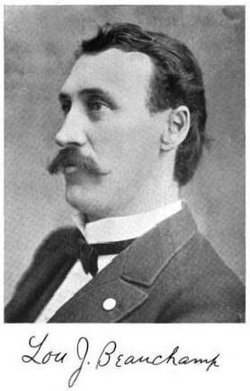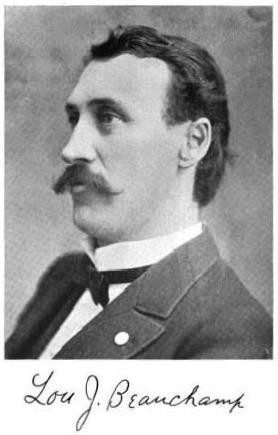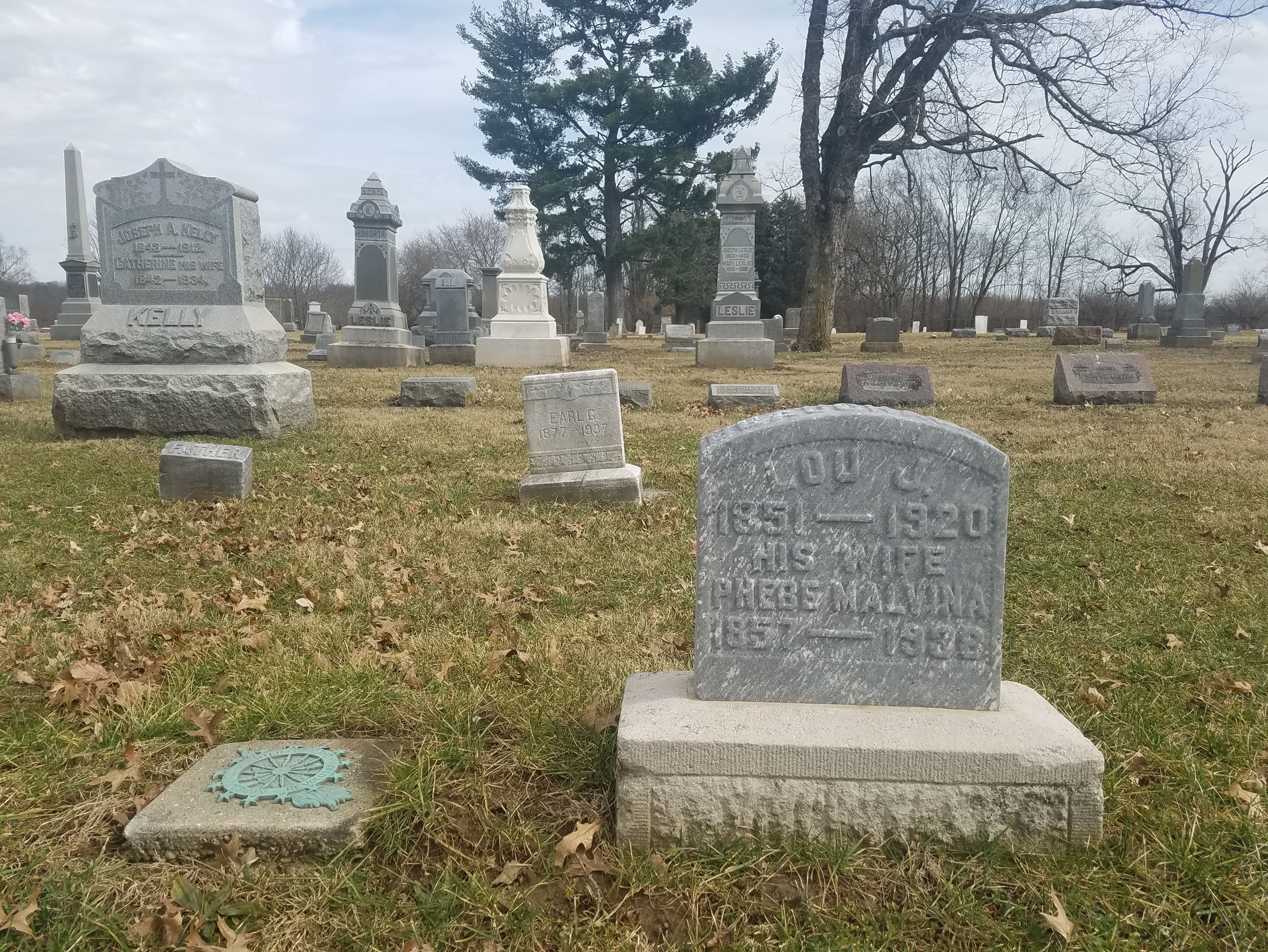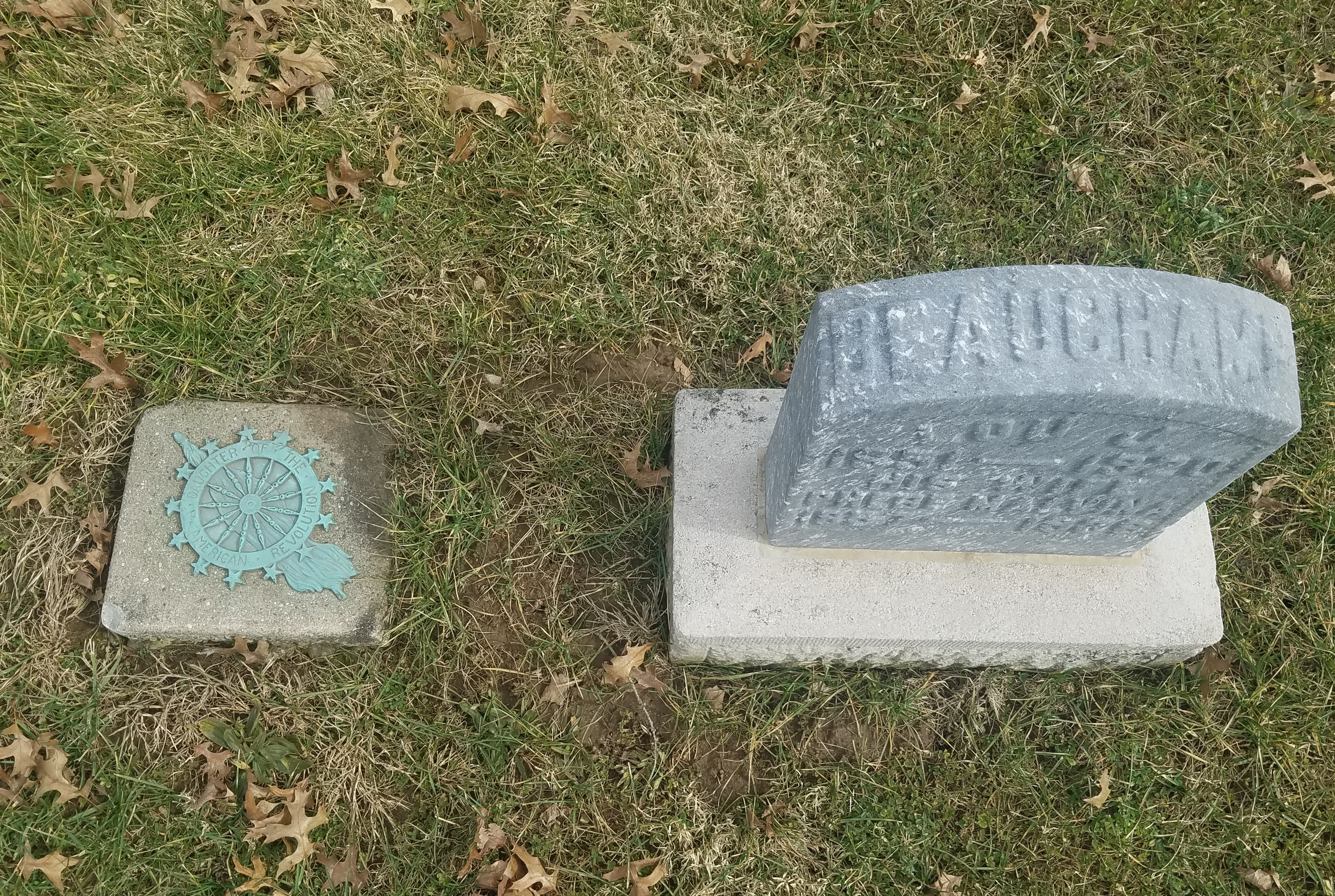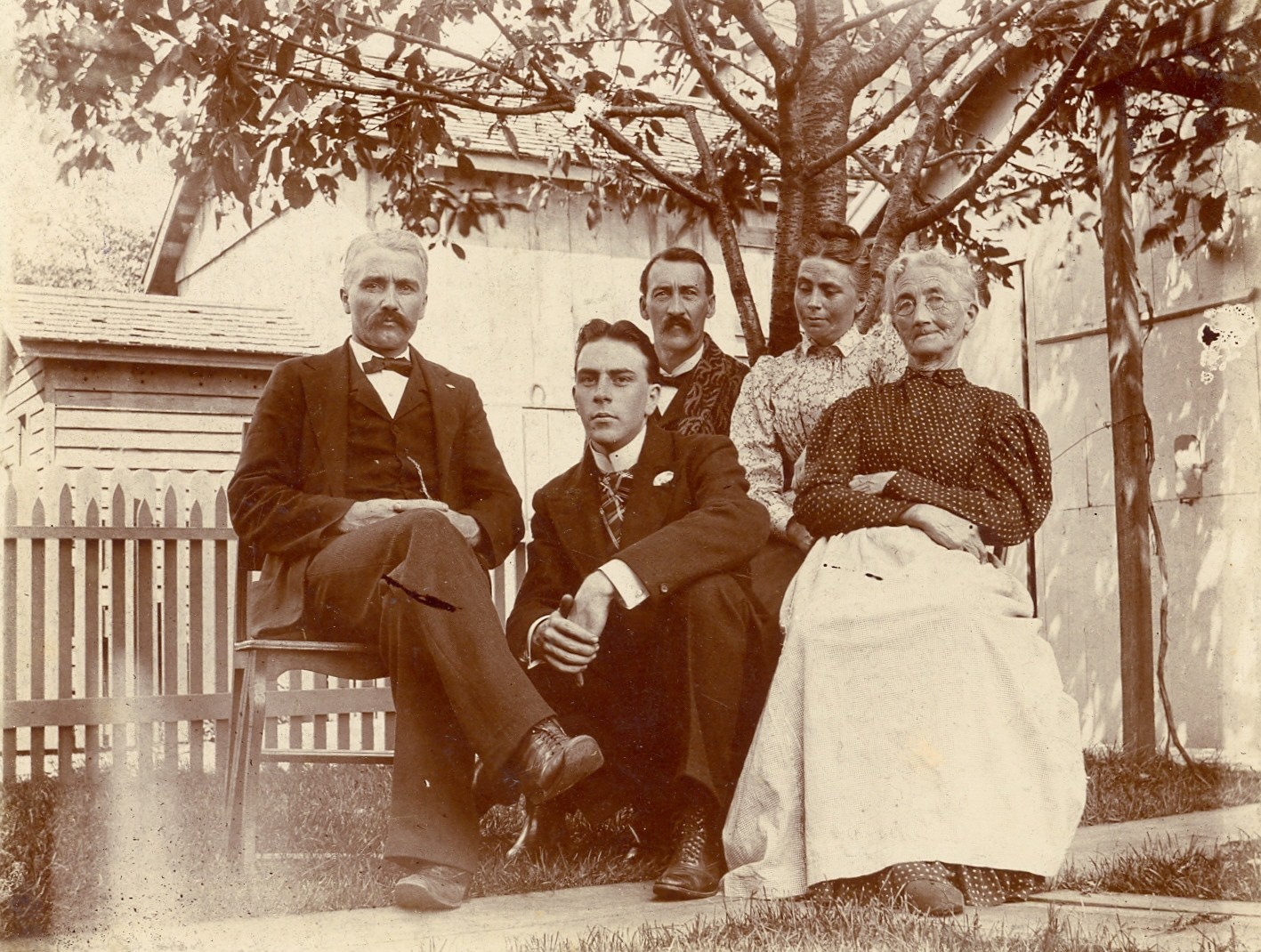Journal-News, Monday, March 16, 1992
Newspapers lauded Lou Beauchamp's stance on temperance issue
(This is the first of two columns on Lou J. Beauchamp)
By Jim Blount
The name Lou J. Beauchamp is not a familiar one in Hamilton today, but early in this century his fame and influence was spreading throughout the UnitedStates and in much of the world.
Beauchamp — known as "The Apostle of Sunshine" — claimed to have logged more than two million miles as an inspirational speaker and crusader fortemperance.
Because of his message and oratorical skills. Beauchamp also was considered a presidential candidate by the Prohibition Party.
Beauchamp died June 4, 1920, in Milford, Iowa, while on a lecture tour. His death, said the Journal, ''silenced the lips that spoke only words of sunshineand cheer to listening thousands."
An editorial said "no man ever lived who carried the name of fame of Hamilton farther and oftener than Lou Beauchamp. He spoke of and about Hamilton from thousands of platforms and always a boost."
Lou J. Beauchamp was born Jan. 14, 1851, in Cincinnati. He moved to Hamilton as a boy with his parents and was educated in local public schools.
At age 14. he learned printing in the office of a Hamilton weekly newspaper. He also learned the news business and while still a young man became thetelegraph and news editor of the Cincinnati Daily Star (later merged with the Cincinnati Times as the Cincinnati Times-Star, and later with the CincinnatiPost).
"For five years he was connected with several newspapers, out then an unfortunate episode in his life occurred — an episode which he never sought toconceal — he became the victim of liquor," recalled an obituary writer.
"But in the meantime, Colonel Beauchamp had married — Miss Mellie Gardner of Hamilton, becoming his wife — and through her devotion and faith he was won back to a life of usefulness. It was then that he entered upon his brilliant career," the obituary said.
"In his early life he had enlisted in the battle against the Demon Rum," wrote Fred High for Billboard, an entertainment industry publication.
"He was one of the greatest powers that the platform exerted. He was even talked of for president as a prohibition candidate. It was probably as an orator, organizer and leader of his moral force that he did his greatest work."
High said Beauchamp "had fallen to the lowest depth and had been lifted up by the care and kindness the love that knows no bounds — the love that only a real wife can devote to a man such as he was, and it was only such devotion that lifted him to the heights where he could touch the hearts of millions of his fellow wayfarers."
"He had pioneered in the temperance work, and had done the same in the present lyceum and Chautauqua field of endeavor," High wrote in Billboard.
High also said Beauchamp "was, even at the time of his death, a pioneer in the work of a better understanding in the commercial world and in themanufacturing and industrial life where there is so much bitterness and strife where there should be love and friendship."
For 19 years, Beauchamp lectured throughout the United States and abroad, including Canada, Mexico, England, Scotland, Ireland and Europe.
According to one account, Beauchamp was "always accompanied by his faithful wife, presenting the message of total abstinence."
Following a European tour, he wrote the book, 'What the Duchess and I Saw in Europe."
Meanwhile, he continued to reside in Hamilton and at the peak of his career, he came to the aid of his neighbors during their hour of greatest need. This will be explained in next week's column.
March 23, 1992 - Beauchamp helped Hamilton in 1913:
Journal-News, Monday, March 23,1992
Beauchamp helped community after 1913 flood
(This is the second of two columns on Lou J. Beauchamp)
By Jim Blount
Lou J. Beauchamp brought inspiration and culture to many communities in the world, but he didn't ignore his Hamilton roots when tragedy struck the city in1913.
According to his obituary, "Colonel Beauchamp became one of the pioneers of the Chautauqua in scope and influence, Colonel Beauchamp became aleading factor in its progress.
''The organization which sprang up in support of the Chautauqua movement elicited the earnest support of Colonel Beauchamp, and his counsel was often sought."
The Chautauqua movement — founded in 1874 in Chautauqua, N. Y. — brought learning and fun to many smaller communities.
In the years before radio, television and video players, the Chautauqua summer assembly series offered adult education, self improvement, fine arts andentertainment.
The Journal obituary said Beauchamp's "most famous lecture was 'Take the Sunny Side,' and by special request it was repeated year after year. It was acheering message and it dealt with a wide scope of subjects."
"He touched upon the follies of society, upon the shortcomings of politics, the intricacies of modern business, and out of it all he brought a. wonderfulmessage to young and old and held up to their vision the sunshine of life," said the enthusiastic obituary writer.
Although much in demand on the speaking circuit, the ''Apostle of Sunshine" interrupted his tour to return home when disaster struck Hamilton in March 1913.
"Prior to 1913 Colonel Beauchamp had traveled far and wide," the Journal recalled, "but when the flood came, he hastened home to find a city buried inmud, its business wrecked and its homes in mourning.
During the flood the Great Miami River rose to record depths and covered Hamilton stretching from what is now Erie Highway on the east to C and Dstreets on the west. On Easter, March 23, the river had three feet of water. Three days later it reached a depth of 34.6 feet in Hamilton.
Ninety-four Ohio towns reported flood damage and a death toll of 367 with Hamilton accounting for more than 200 deaths.
Hamilton losses also included more than 300 houses destroyed and another 2,000 so badly damaged that they had to be demolished, leaving more than10,000 people homeless.
"Then it was that the spirit of Beauchamp became apparent," the newspaper noted.
"Following those dark days, he simply went about doing good. His great library, containing many rare and priceless books, had been swept away, his own home was a wreck, but the 'Apostle of Sunshine' took 'the sunny side' and went out among his friends and neighbors and with words of cheer, words of comfort, did a yeoman's work in bringing order out of chaos."
The newspaper said "he gave unstintingly of his time, of his talents, for Hamilton.
"It was through his personal efforts that the summer Chautauqua was established in Hamilton in 1913, and brought the people of Hamilton together for the first time after the great catastrophe of the flood had swept over their homes.
"This was a great homecoming, a great reunion of the people of Hamilton. And the Chautauqua grew in size and influence because Beauchamp added the weight of his influence not only to the Chautauqua itself, but to the securing for Hamilton the best that there was to be had."
The Journal said "Beauchamp was one of the greatest Chautauqua leaders in this country. He was foremost in the organization of the International Lyceum Association, was one of its organizers and its president."
Beauchamp died Friday evening, June 4, 1920, at Milford, Iowa, while on a lecture tour. He is buried in Greenwood Cemetery in Hamilton.
Journal-News, Monday, March 16, 1992
Newspapers lauded Lou Beauchamp's stance on temperance issue
(This is the first of two columns on Lou J. Beauchamp)
By Jim Blount
The name Lou J. Beauchamp is not a familiar one in Hamilton today, but early in this century his fame and influence was spreading throughout the UnitedStates and in much of the world.
Beauchamp — known as "The Apostle of Sunshine" — claimed to have logged more than two million miles as an inspirational speaker and crusader fortemperance.
Because of his message and oratorical skills. Beauchamp also was considered a presidential candidate by the Prohibition Party.
Beauchamp died June 4, 1920, in Milford, Iowa, while on a lecture tour. His death, said the Journal, ''silenced the lips that spoke only words of sunshineand cheer to listening thousands."
An editorial said "no man ever lived who carried the name of fame of Hamilton farther and oftener than Lou Beauchamp. He spoke of and about Hamilton from thousands of platforms and always a boost."
Lou J. Beauchamp was born Jan. 14, 1851, in Cincinnati. He moved to Hamilton as a boy with his parents and was educated in local public schools.
At age 14. he learned printing in the office of a Hamilton weekly newspaper. He also learned the news business and while still a young man became thetelegraph and news editor of the Cincinnati Daily Star (later merged with the Cincinnati Times as the Cincinnati Times-Star, and later with the CincinnatiPost).
"For five years he was connected with several newspapers, out then an unfortunate episode in his life occurred — an episode which he never sought toconceal — he became the victim of liquor," recalled an obituary writer.
"But in the meantime, Colonel Beauchamp had married — Miss Mellie Gardner of Hamilton, becoming his wife — and through her devotion and faith he was won back to a life of usefulness. It was then that he entered upon his brilliant career," the obituary said.
"In his early life he had enlisted in the battle against the Demon Rum," wrote Fred High for Billboard, an entertainment industry publication.
"He was one of the greatest powers that the platform exerted. He was even talked of for president as a prohibition candidate. It was probably as an orator, organizer and leader of his moral force that he did his greatest work."
High said Beauchamp "had fallen to the lowest depth and had been lifted up by the care and kindness the love that knows no bounds — the love that only a real wife can devote to a man such as he was, and it was only such devotion that lifted him to the heights where he could touch the hearts of millions of his fellow wayfarers."
"He had pioneered in the temperance work, and had done the same in the present lyceum and Chautauqua field of endeavor," High wrote in Billboard.
High also said Beauchamp "was, even at the time of his death, a pioneer in the work of a better understanding in the commercial world and in themanufacturing and industrial life where there is so much bitterness and strife where there should be love and friendship."
For 19 years, Beauchamp lectured throughout the United States and abroad, including Canada, Mexico, England, Scotland, Ireland and Europe.
According to one account, Beauchamp was "always accompanied by his faithful wife, presenting the message of total abstinence."
Following a European tour, he wrote the book, 'What the Duchess and I Saw in Europe."
Meanwhile, he continued to reside in Hamilton and at the peak of his career, he came to the aid of his neighbors during their hour of greatest need. This will be explained in next week's column.
March 23, 1992 - Beauchamp helped Hamilton in 1913:
Journal-News, Monday, March 23,1992
Beauchamp helped community after 1913 flood
(This is the second of two columns on Lou J. Beauchamp)
By Jim Blount
Lou J. Beauchamp brought inspiration and culture to many communities in the world, but he didn't ignore his Hamilton roots when tragedy struck the city in1913.
According to his obituary, "Colonel Beauchamp became one of the pioneers of the Chautauqua in scope and influence, Colonel Beauchamp became aleading factor in its progress.
''The organization which sprang up in support of the Chautauqua movement elicited the earnest support of Colonel Beauchamp, and his counsel was often sought."
The Chautauqua movement — founded in 1874 in Chautauqua, N. Y. — brought learning and fun to many smaller communities.
In the years before radio, television and video players, the Chautauqua summer assembly series offered adult education, self improvement, fine arts andentertainment.
The Journal obituary said Beauchamp's "most famous lecture was 'Take the Sunny Side,' and by special request it was repeated year after year. It was acheering message and it dealt with a wide scope of subjects."
"He touched upon the follies of society, upon the shortcomings of politics, the intricacies of modern business, and out of it all he brought a. wonderfulmessage to young and old and held up to their vision the sunshine of life," said the enthusiastic obituary writer.
Although much in demand on the speaking circuit, the ''Apostle of Sunshine" interrupted his tour to return home when disaster struck Hamilton in March 1913.
"Prior to 1913 Colonel Beauchamp had traveled far and wide," the Journal recalled, "but when the flood came, he hastened home to find a city buried inmud, its business wrecked and its homes in mourning.
During the flood the Great Miami River rose to record depths and covered Hamilton stretching from what is now Erie Highway on the east to C and Dstreets on the west. On Easter, March 23, the river had three feet of water. Three days later it reached a depth of 34.6 feet in Hamilton.
Ninety-four Ohio towns reported flood damage and a death toll of 367 with Hamilton accounting for more than 200 deaths.
Hamilton losses also included more than 300 houses destroyed and another 2,000 so badly damaged that they had to be demolished, leaving more than10,000 people homeless.
"Then it was that the spirit of Beauchamp became apparent," the newspaper noted.
"Following those dark days, he simply went about doing good. His great library, containing many rare and priceless books, had been swept away, his own home was a wreck, but the 'Apostle of Sunshine' took 'the sunny side' and went out among his friends and neighbors and with words of cheer, words of comfort, did a yeoman's work in bringing order out of chaos."
The newspaper said "he gave unstintingly of his time, of his talents, for Hamilton.
"It was through his personal efforts that the summer Chautauqua was established in Hamilton in 1913, and brought the people of Hamilton together for the first time after the great catastrophe of the flood had swept over their homes.
"This was a great homecoming, a great reunion of the people of Hamilton. And the Chautauqua grew in size and influence because Beauchamp added the weight of his influence not only to the Chautauqua itself, but to the securing for Hamilton the best that there was to be had."
The Journal said "Beauchamp was one of the greatest Chautauqua leaders in this country. He was foremost in the organization of the International Lyceum Association, was one of its organizers and its president."
Beauchamp died Friday evening, June 4, 1920, at Milford, Iowa, while on a lecture tour. He is buried in Greenwood Cemetery in Hamilton.
Family Members
Sponsored by Ancestry
Advertisement
Explore more
Sponsored by Ancestry
Advertisement
